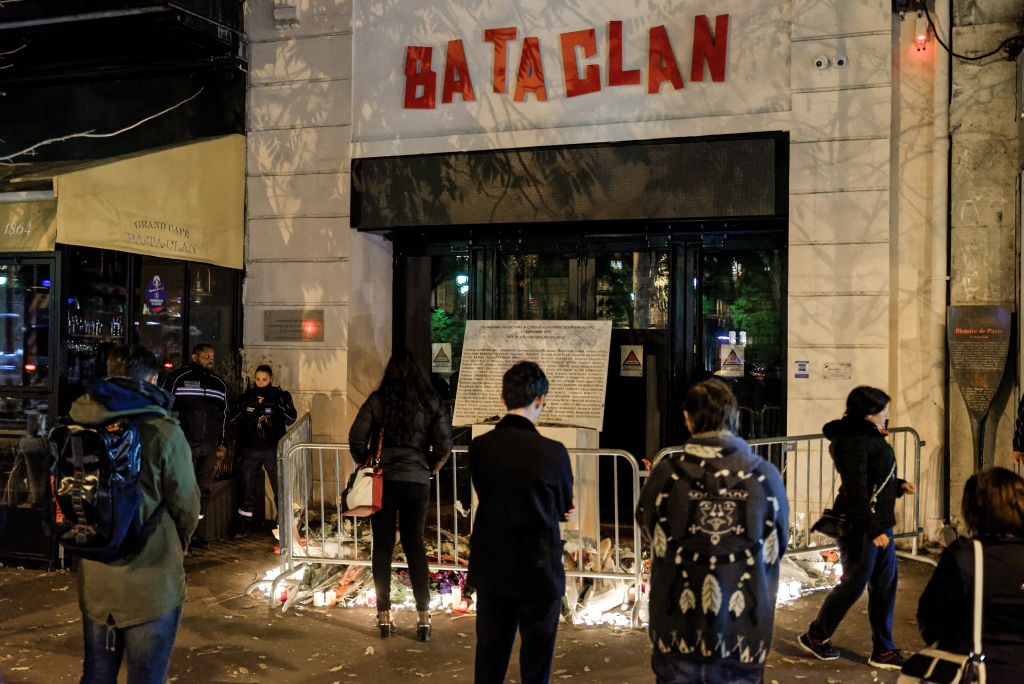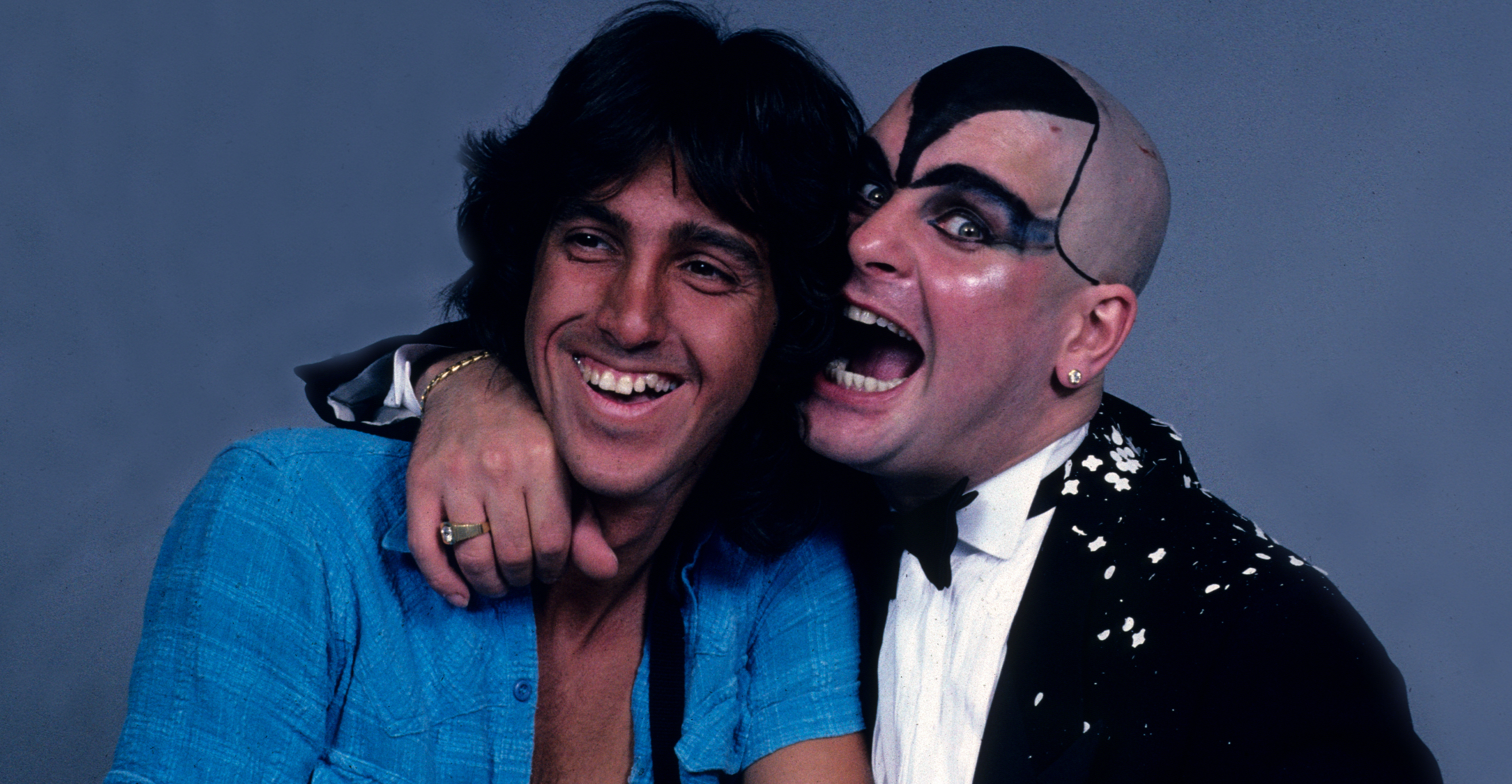Five years ago, Olia Ougrik, the 39-year-old co-owner and public relations director of Los Angeles-based PR and advertising firm Raconteur, was madly in love with her fiancé, Guillaume, and excited about their future together. “I was going to get married, buy an apartment, have a kid, and everything was peachy keen,” Ougrik remembers, telling SPIN over the phone from her mother’s home in Paris, where she’s been staying during the pandemic. “But I remember thinking, ‘Oh my God, I’m happy right now. It’s not going to last.’ And then, boom, the Bataclan happened.”
On Nov. 13, 2015, three ISIS terrorists, armed with machine guns and wearing suicide vests, stormed popular Paris concert venue the Bataclan as Eagles of Death Metal were performing before a sold-out crowd of 1,500. Ninety victims died and dozens were wounded in the massacre. By the end of the night, the terrorists were dead. The most extreme violence in Paris history, it was a horrific night across the French capital as coordinated terror attacks left 130 dead and more than 300 injured.
Ougrik and Guillaume went to the Bataclan looking for a night of fun and frivolity. Instead, they found themselves running for their lives amidst relentless gunfire. A harrowing nightmare, its traumatic impact lingers to this day. Ougrik draws a categorical distinction between life before and after that night. “There is something that’s taken away from you,” she says. “You don’t view the world the same way. You’re aware of evil basically. It’s not abstract. All of a sudden it becomes real, concrete and tangible.”
Speaking candidly about her traumatizing ordeal and its aftermath, Ougrik puts pressure on herself, wondering if she needs to seem sage-like. “I was thinking, ‘Do I need to say something super meaningful? Am I supposed to be wise and spew nuggets of wisdom and clarity?” she says.
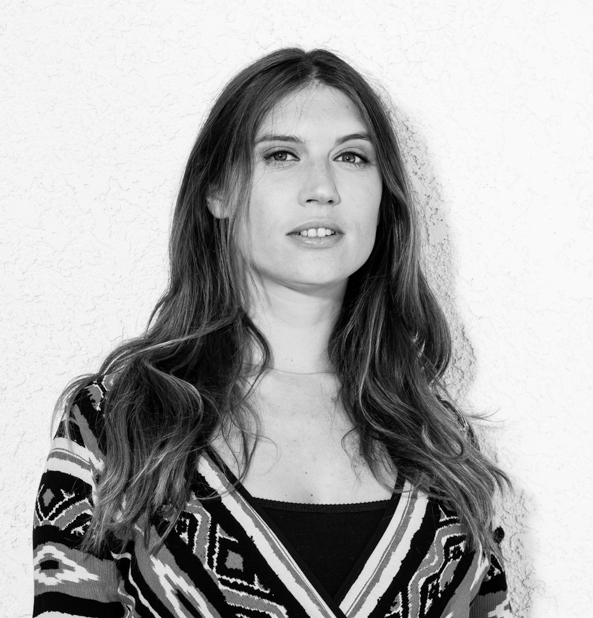
Born in Los Angeles to a French mother and a Russian father who was born in France, Ougrik, the youngest of three children, moved to Paris when she was 11 years old. A bilingual dual citizen (French and American), she lives in Paris and travels regularly to Los Angeles for work.
Missing California, Ougrik bought a pair of tickets to see Eagles of Death Metal. “For me, they represented L.A. and letting loose, and I knew we were in for a fun show,” she says.
A music fan and former music veejay, Ougrik can’t go to concerts as often as she’d like because during the week she coordinates with the Los Angeles workday. She begins work at 7 p.m. in Paris and finishes at 3 a.m. When she bought the tickets, Ougrik figured she’d start her weekend early (the show was on a Friday night).
“The Bataclan has always been the venue that I’ve loved. I have countless memories there,” she says. “I can’t even count how many concerts I’ve seen there. I know that place by heart.”
On the day of the concert, Guillaume wasn’t feeling well, and since he wasn’t familiar with the band, he didn’t feel like going to the show. But, at the last minute, he changed his mind. “He came home from work and he said, ‘You work so damn hard and you can never go to shows during the week because you work at night, and I know this makes you happy, so let’s go.’ It was one of those, ‘I’ll do this for you’ kind of things,’” she says.
Running late, they arrived at the Bataclan while Eagles of Death Metal were already performing. The pair stood at the back of the venue, just inside the entrance’s swinging doors and not far from the bar. Guillaume stayed closer to the bar, with a meter between them. Suddenly, while watching the show, Ougrik saw people swarming through the entrance looking fear-stricken. Within seconds, Guillaume ran up to Ougrik, shielded her with his body, grabbed her shoulder and pulled her down to the floor.
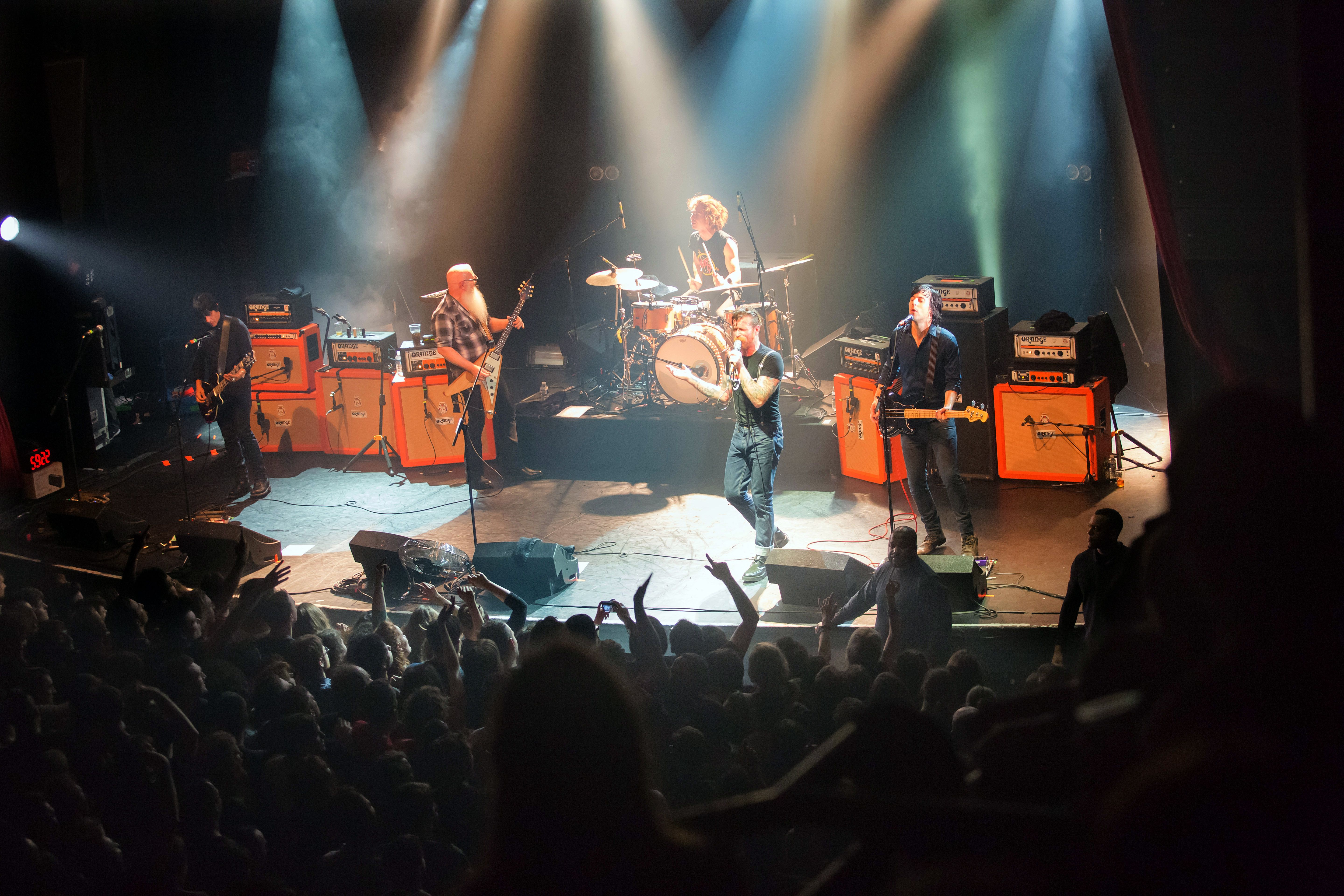
“Before I could even think, my fiancé grabbed me on the shoulder and pulled me down,” Ougrik says. “I was still registering that something weird was going on outside. There was a delay with me. But Guillaume already knew and was active.”
As the terrorists burst into the venue spraying bullets, some concertgoers mistook the gunfire for pyrotechnics, but Ougrik knew otherwise.
“It’s sad to say, but I’m American,” she says. “French people don’t have a gun culture, so the idea of gunshots isn’t a thing.” Terrified and huddled on the venue’s floor, they were a stone’s throw away from the gunmen. “If Guillaume hadn’t pulled me down, I might have been dead already,” she says. “We were really in the line of fire. I can’t even begin to explain to you what three machine guns sound like at such a close distance.”
Several minutes later, Guillaume pulled Ougrik further back and closer to the bar. She says she purposely didn’t look at the gunmen. She figured if they locked eyes with her, they’d shoot. Her impulse was to lie down and play dead on the floor. “I was in the mode of, ‘Let’s just lie down here and not move and wait this out.’ And Guillaume was like, ‘No, we’re not going to do that.’” He insisted that they try to escape immediately, by making a mad dash to a nearby stairway that led to an exit. “I remember him taking my shoulder and saying, ‘One, two three,’ and then ‘let’s run’ and that’s when the fear hit and it was the hardest for me,” says Ougrik. “You stand up and everyone else is on the floor and you figure how can they not see two people gunning it? You’re running for your life, and you’re like, ‘I’m going to get shot in the back; I’m going to get shot in the back; I’m going to get shot in the back.’”
Ougrik, wearing high-heeled boots, tripped and fell while trying to navigate through the crowd. “There were a lot of bodies on the floor — dead or alive, I don’t even know. But probably some were dead, and then there were others like me who were just trying not to get hit,” she says. Once again, her impulse was to lie down, but Guillaume picked her up off the floor, and the pair ran to the stairway, where Ougrik fell again. Guillaume pulled her up, and they ran out the exit and onto a side street.
“There’s no doubt in my mind that he saved my life,” she says. “I would call him my hero, no problem. He had all the right instincts, and I definitely didn’t. I froze. I was not functioning. It sucks because no one wants to think that that’s how you’re going to react, but that’s how I reacted.”
Once outside, they ran to a nearby restaurant and pounded on its locked iron door until the owner let them in. Inside, there were others who had fled the Bataclan in addition to wounded victims who’d been shot outside, lying on the floor.
She called her older sister, Valia, to let her know she was safe and asked her sister to call their parents. As news of the Bataclan attack hadn’t broken yet, Valia was initially confused when Ougrik called. “We were the last stop of the organized attack, the bouquet final, so it was kind of like no one knew yet,” she says. Just as she explained and assured her sister that she was sheltered safely, she heard more gunfire. “One of the terrorists came back out and started spraying the people who were escaping through the exit we escaped from,” she says. “I mean, that’s some vicious shit right there. Just to hear the machine gun so close again threw me over the edge.”
She immediately hung up with Valia who “was freaking out, of course.” Ougrik and Guillaume climbed up to a dark and attic-like space beneath the restaurant’s roof where they hid with others. She texted her sister to let her know she was tucked away securely, communicated with friends over Facebook Messenger and emailed her Los Angeles colleagues to let them know what was happening.
When law enforcement finally evacuated her and Guillaume, Ougrik was overcome by the stench of vomit and blood permeating the restaurant. She cried as she walked past paramedics tending to gunshot victims.
As they were not authorized to leave the area and the perimeter was closed off, she and Guillaume couldn’t go home. They stood on a street corner where they met a couple of men who relayed that the terrorists were walking around the Bataclan and shooting people in the head who were lying on the floor playing dead. Ougrik got chills.
Eventually, police directed them to a cafe with approximately 100 other panicked survivors, some of whom had friends and loved ones still inside the Bataclan. “I can’t even begin to tell you the screams and yells. It was the night from hell,” she says. “Everyone was traumatized.”
Just before midnight, BRI, an elite unit of the French National Police, launched an intervention to free 20 hostages being held by the terrorists. By the end of the raid, the terrorists were dead and the hostages were rescued, along with others who’d been trapped inside the venue, some of whom were injured. However, when Ougrik and Guillaume heard an assault of explosions and gunfire, it was only natural to assume the worst — that whoever had been alive up until that point was probably killed in the siege.
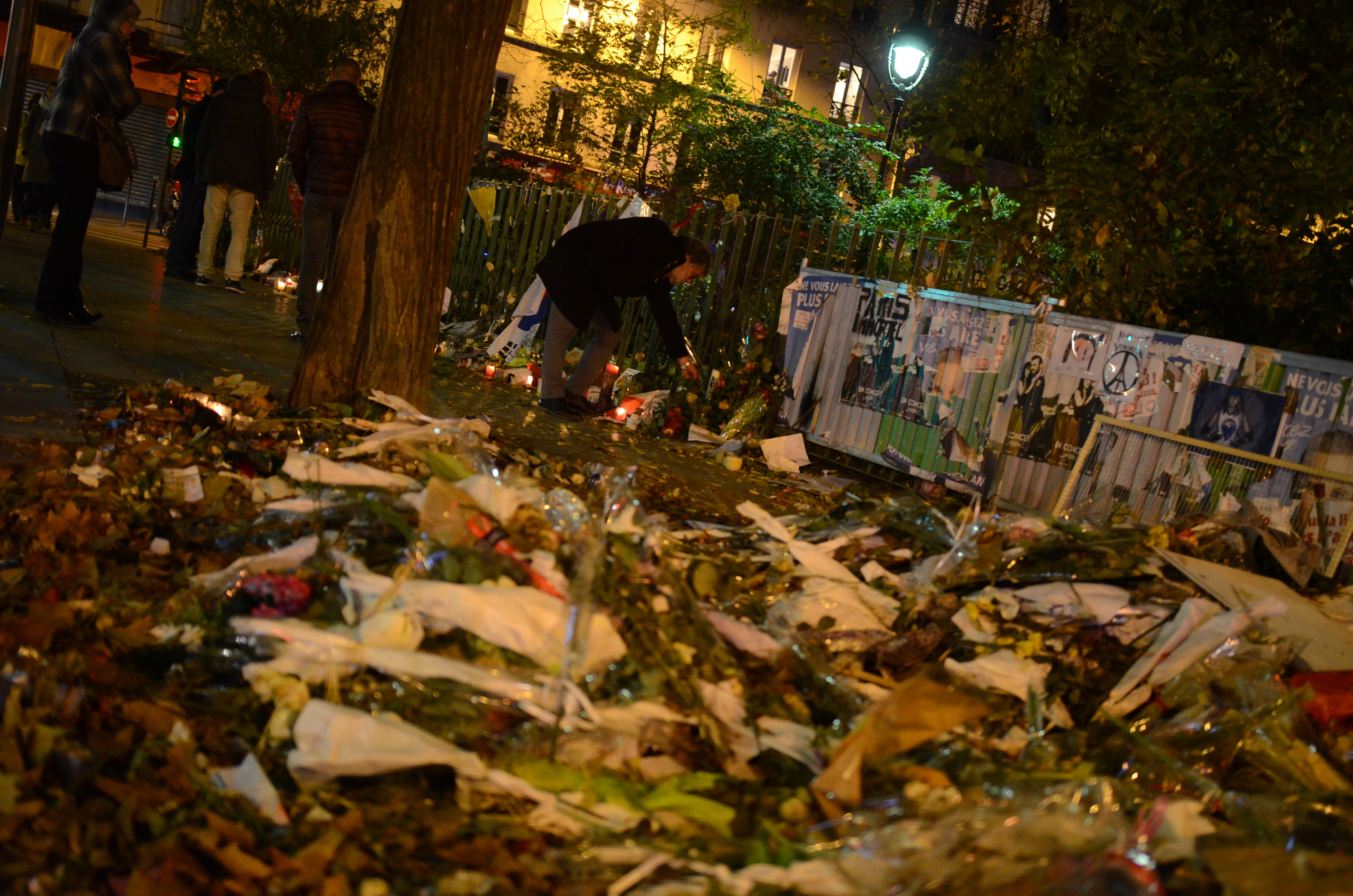
The next day, she struggled to wrap her head around what she’d been through. “It started dawning on me…I almost died at the Bataclan,” she says. “I kept repeating it all day. It’s so bizarre to go to see a show at the Bataclan, one of the things I’ve done so many times that I can’t count, something that always makes me happy, and I almost died there. It was surreal. How do you go to a rock concert and almost die?”
Ougrik had trouble sleeping for several nights. One afternoon, she audibly hallucinated gunshots when she heard sirens outside while watching TV. She thought there was another attack happening and looked out the window only to find nothing there. “It dawned on me that I was losing it,” she says. “I thought, ‘OK, nothing’s going on. You’re officially a crazy person.’”
She went through a brief period where she “vomited” her experience to anyone who would listen. “Then I tried to shut my brain from it,” she says. Yet trying to make sense out of the senseless attack, she compulsively researched ISIS. “I got obsessive about the news, about ISIS itself, the foreign policies that created ISIS and why ISIS wanted to hurt Westerners,” she says. “I needed to intellectualize it for whatever reason.”
A pivotal moment in her recovery was giving a statement to the police, a prerequisite for receiving the governmental financial compensation for terror victims. “It felt like a huge weight was lifted and I was extremely grateful,” she says. “You’re surrounded by friends and family who love you, but they weren’t there, so it felt good talking to a police officer in the terror division who was actively involved in the investigation and understood what you’ve been through,” she says.
It was important to Ougrik to get back to regular life as soon as possible to facilitate her recovery still further. “It wasn’t, ‘I’m not afraid,’” she says. “I consciously made decisions almost as if I knew, ‘I don’t want to be traumatized.’ It was, ‘I’m not going to have a shitty life because of this one event. It’s not going to define the rest of my life.’”
Just one month after the attack, she went to see a friend, L.A.-based singer-songwriter Doe Paoro, play a small show in Paris. “Seeing her perform was the best way for me to return to life as it was,” she says.
When Eagles of Death Metal returned to Paris to play a show for survivors at the Olympia concert venue two months later, Ougrik invited Guillaume, but he declined. She didn’t pressure him to join. She felt guilty that she was the reason he’d gone to the Bataclan concert, and she felt she owed him her life. “I was thinking, ‘I’m definitely not going to push you to do anything. You’ve done more than enough,’” she says.
Instead, she went to the Olympia with a girlfriend.
“It did me a world of good,” she says. “Symbolically, it was important for me to see the band and to do this night that should have happened. I also remember being so happy to be patted down so thoroughly. I thanked the security guys. I was crying a lot during the show. It was cathartic.”
Ougrik also began going to bars and cafes again. “If you take that away from me, and the same thing with concerts, I’m no longer me, so there was no way in hell they (the terrorists) were going to take that away,” she says.
For a while, she took an antidepressant. She also worked with a life coach and tried therapy twice.
In April 2016, Ougrik and Guillaume were married in Los Angeles, where they spent three weeks before returning to Paris. She says their wedding was “the most beautiful day of my life.” For a while, the newlyweds kept busy as they began their new chapter together. They bought an apartment which they remodeled, but by the time they settled into their new home, the couple had grown apart. “We were two different people by then,” she says. “Once I started realizing our marriage wasn’t doing well, maybe a year had passed and we were just going through the motions.”
She says that not only did they get married so soon after the attack, but coping differently drove a wedge between them. Additionally, survivor’s guilt impeded their recovery. “We had this guilt that what we went through was nothing compared to others, so there was a part that we didn’t address because it was like we felt we couldn’t be traumatized, too,” she explains.
While she struggled with her strained marriage, Ougrik’s father died within several days of having a stroke at the end of 2017. As she grieved, her marriage reached a breaking point. “We were miserable and that life we were supposed to create, it all stopped. It just ended,” she says. The couple separated the following year, and Ougrik went to Los Angeles, where she cried every day for several months. By the time she returned to Paris hoping to save her marriage, it wasn’t salvageable.
The divorce, which was amicable, was finalized last year. They remain good friends who talk frequently. Neither dwelling upon nor ignoring it, occasionally they talk about the Bataclan attack which, she notes, was the last time they ever went to a concert together.
Since the attack, she avoids large crowds like outdoor rallies and protests where security would be impossible. Before live music was shut down due to COVID, she located the exits at venues, made sure there was enough security to whom she expressed gratitude and left before the encore to avoid being crammed in among a mass of people walking toward the exit all at once.
She still enjoys going to concerts, but they haven’t felt exactly the same since the Bataclan attack. “There is something in me that’s changed because now I know what can happen,” she says.
She discarded the outfit and boots she wore on the night of the attack, and she’s never returned to the Bataclan, avoiding the area entirely.
“Paris is small, so avoiding a neighborhood, especially a happening neighborhood in such a small city, is a real thing,” she says. When the Bataclan reopened its doors a year after the attack, she couldn’t fathom it. “I thought it was a bit too soon, and I was a little bit horrified that they didn’t do a huge remodel,” she says. “It’s very much the same as it was. I thought, ‘So people are going to go have fun on a gravesite?’ That’s what it is to me. It’s just so weird envisioning going back in there with it being the same. I wouldn’t be able to not think of all the blood…For me, it’s dancing on dead bodies.”
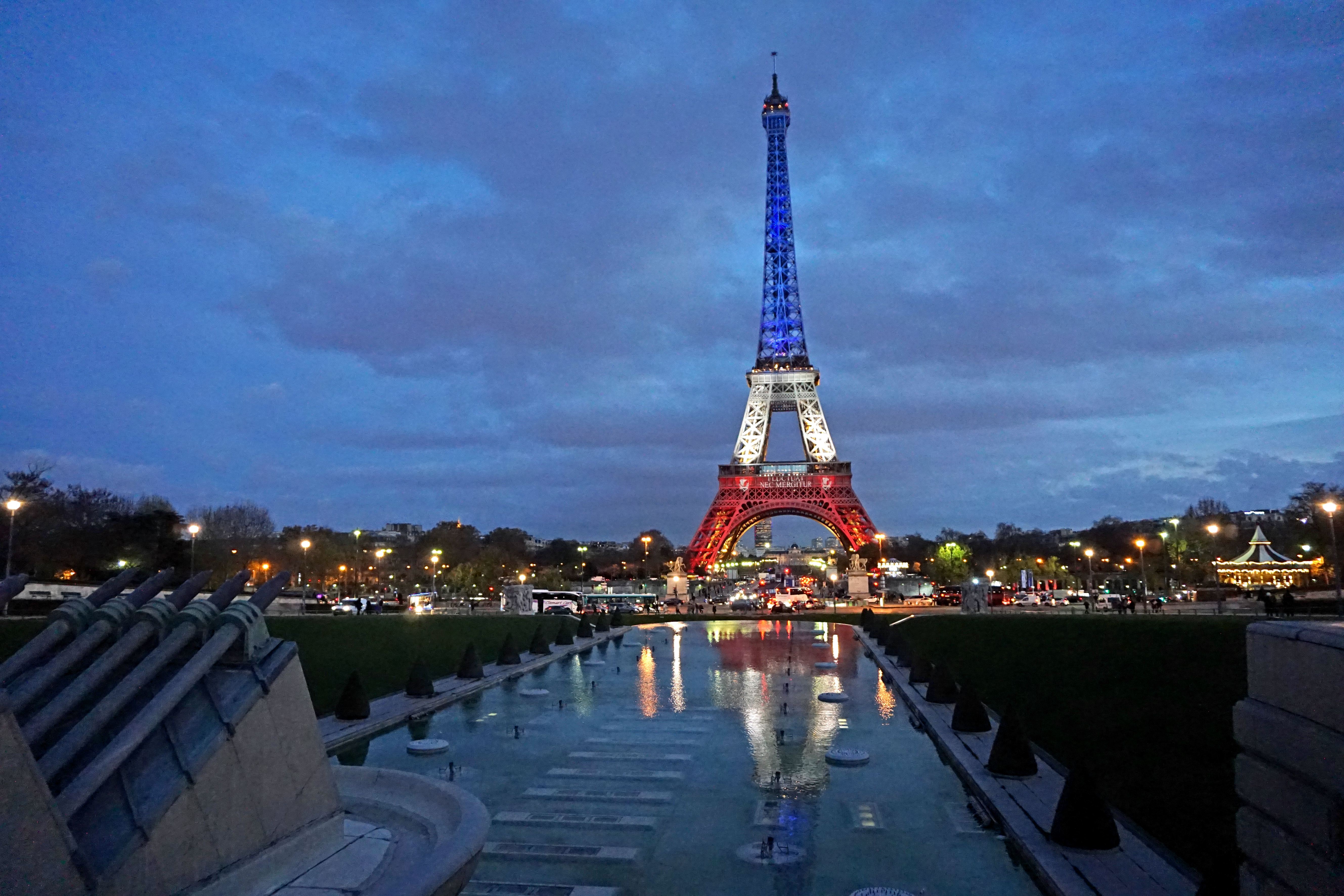
Five years later, she continues to deal with the fallout from the attack. The sound of gunshots in a TV show can be deeply unsettling. “When I was in the Bataclan, it seemed like the firing was nonstop until we were out. The sound of three unrelenting Kalashnikovs so close is something I can’t ever forget,” she says. “If I am watching a TV show and there are machine-gun attacks, I think I can deal with it, but sometimes certain scenes are hard for me.’” Ever since the attack, she’s been staunchly anti-gun. “Guns are meant to kill people. Period. More guns mean more deaths,” she says.
She suffers from anxiety attacks and occasional nightmares, and sometimes her mind plays tricks on her when she’s feeling especially tired, vulnerable or fragile. “It’s just like if you’re at home and you get scared that there’s a ghost in the house and then your mind plays games,” she explains. She recalls an experience in which she was walking through Paris’s empty streets during its first COVID-related lockdown (they are currently undergoing their second lockdown) and had a flashback of walking through the desolate streets just before she arrived home at 4:30 a.m. on the night of the attack.
After avoiding the subway for a year or two, Ougrik had panic attacks when she first returned. “It was the no way out thing,” she says. “If there’s a bomb, where am I going to escape to?” Every now and again, she still has sensitive moments while riding the subway or bus.
She sold her apartment in Paris earlier this year and planned to return to California to buy a house in Joshua Tree. She was just about to ship her belongings overseas when the world shut down due to the pandemic. She hopes to relocate to California post-COVID.
She credits friends and family, to whom she’s grateful, for helping her to feel normal again, however, lately she’s been feeling fragile.
“I see that I’m not my best self right now,” she says. “I’ve been through a lot in the past few years, and I’m probably just tired from it all. After hearing for so long about how strong I was and listening to my friends say beautiful things about how they admire me, I take that in and I believe them and I’m happy when I hear it, but I’m coming to a point in my life where I don’t feel strong anymore and I’m kind of saying, ‘I’m not strong and I’m allowed not to be strong.’ There’s almost a thing of, ‘I don’t want to be strong right now.'”
A spate of recent terror attacks in France and Vienna has added to her sense of fragility and made her feel unsafe once again. “I thought I was fine and I did think I was over it, but I’m actually not,” she says. “I’m still super sensitive. You realize this stuff is a long process. It doesn’t just go away.
She’s especially dreading the five year anniversary of the Bataclan attack arriving on the heels of recent attacks. “I’m sad because here we are, five years later, and we’re very much in it again.”
Ougrik has never been good at remembering dates but says, “November 13th is etched in my mind forever, and Friday the 13th because it was a Friday the 13th. I never used to think that was bad luck. Now, it is a real thing for me.”
As to what’s next, she claims no immediate plans, but ponders a return to therapy.
“My entire life I’ve flirted with therapy and run away from it,” she says. “Once the work becomes real, I shy away and I don’t want to go there, probably because I’m scared to dig in. But I think I should. I know there’s a better version of myself out there and it’s time to address it.”
While she once thought it was a cliché that you must learn how to love yourself before you can love another, the concept now resonates.
“Happiness is a real thing, and I do think that I’ve been able to fight cynicism,” she says. “And I do think that if I ever find happiness again, and it is possible that I will, I think that I will have the wisdom to recognize that it’s happening when it’s happening and to embrace it.”

